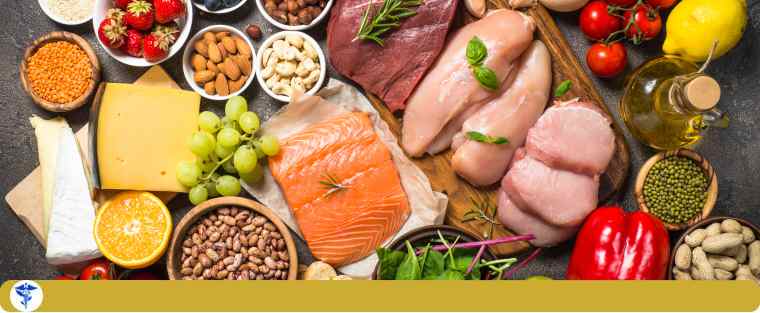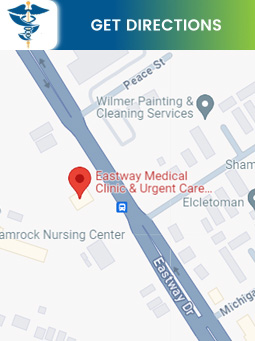Impact of Vegan vs. Omnivorous Diets on Aging
Vegan diets, high in fiber, antioxidants, and minerals from plants, may help people age more healthily by lowering their risk of chronic illness and inflammation. However, a careful balance is required to minimize any detrimental consequences. In contrast, omnivorous diets offer a wider range of nutrients, including vital proteins and fats that help promote muscle mass and overall health as individuals age. Visit Dr. Sylvia Okoye, MD, and Dr. Joseph Okoye, MD, at Eastway Medical Clinic and Urgent Care. For more information, please contact us or book an appointment online. We are conveniently located at 1220 Eastway Drive Charlotte, NC 28205.


Table of Contents:
Is it healthier to be a vegan or an omnivore?
Are vegans actually healthier than meat-eaters?
Are vegan diets healthy for older adults?
Who ages faster, vegans or meat-eaters?
The health benefits of being either a vegan or an omnivore depend largely on how well the diet is balanced. A vegan diet will often involve lower levels of saturated fats and cholesterol, focusing on plant-based foods rich in fiber, vitamins, and antioxidants. These elements can contribute to reduced risks of heart disease, high blood pressure, and certain cancers. However, vegans will need to be cognizant of the potential of nutrient deficiencies, such as vitamin B12 and iron as well as calcium, and omega-3 fatty acids, which are more readily available in animal products. On the other hand, an omnivorous diet includes a wide variety of nutrients from both plant and animal sources, offering a more straightforward way to obtain essential vitamins like B12 and minerals such as iron and zinc. When well-balanced, it provides comprehensive nutrition that supports heart, bone, and muscle health. Ultimately, both diets can be healthy if they prioritize nutrient-rich, whole foods, but each requires careful planning to avoid gaps in nutrition.
While some studies suggest that vegans may have lower rates of heart disease and high blood pressure, this doesn’t necessarily mean they are healthier across the board. Vegan diets are in most cases, high in fiber and antioxidants, promoting lower cholesterol and reduced inflammation, which are beneficial for long-term health. However, these benefits are contingent upon consuming a well-balanced vegan diet that meets all nutrient requirements, including supplementing for deficiencies such as B12 and vitamin D, as well as iron. Meat-eaters, particularly those who follow a diet rich in lean meats, fruits, vegetables, and whole grains, can also maintain excellent health. Many omnivores benefit from a more accessible range of essential nutrients, especially proteins and vitamins that are harder to get from plant-based sources alone. Ultimately, the health of vegans versus meat-eaters comes down to the quality of food choices and whether they meet their dietary needs comprehensively.
Vegan diets can be healthy for older adults, but they require particular attention to certain nutrients that may become harder to obtain with age. As people grow older, their bodies often struggle to absorb vitamins such as B12 and D, both of which are abundant in animal products but lacking in vegan foods. To maintain optimal health, older adults following a vegan diet should ensure they receive these nutrients through fortified foods or supplements, along with enough protein, calcium, and omega-3 fatty acids. For those who plan carefully, a vegan diet can provide sufficient nutrition to support overall health in older age. With a focus on plant-based proteins, whole grains, fruits, and vegetables, vegan diets may help lower risks for heart disease and manage weight. However, without careful dietary management, there is an increased risk of deficiencies that could impact bone density, muscle mass, and energy levels, making proper supplementation particularly important for older adults.
There is no definitive evidence that vegans or meat-eaters age faster purely based on diet. Some studies suggest that a plant-based diet may slow down aging by reducing inflammation and oxidative stress, both of which are factors that contribute to aging. A well-balanced vegan diet, rich in antioxidants, vitamins, and fiber, can promote better skin health, and cardiovascular health and possibly delay certain age-related diseases, but this largely depends on the individual’s overall lifestyle and not just their diet. For meat-eaters, the key to healthy aging lies in the quality of the meat consumed and the balance with other nutrient-dense foods. A diet that includes lean meats, plenty of vegetables, whole grains, and healthy fats can provide essential proteins, vitamins, and minerals that support long-term health and slow down the aging process. Factors such as genetics, physical activity, and lifestyle habits play a more significant role in how quickly someone ages, whether they are vegan or omnivorous.
Visit Eastway Medical Clinic and Urgent Care to consult our professionals who can help tailor dietary plans to support healthy aging. For more information, please contact us or book an appointment online. We are conveniently located at 1220 Eastway Drive Charlotte, NC 28205. We serve patients from Charlotte NC, Newell NC, Mint Hill NC, Matthews NC, Allen NC, Harrisburg NC, and the surrounding areas.
Check Out Our 5 Star Reviews





